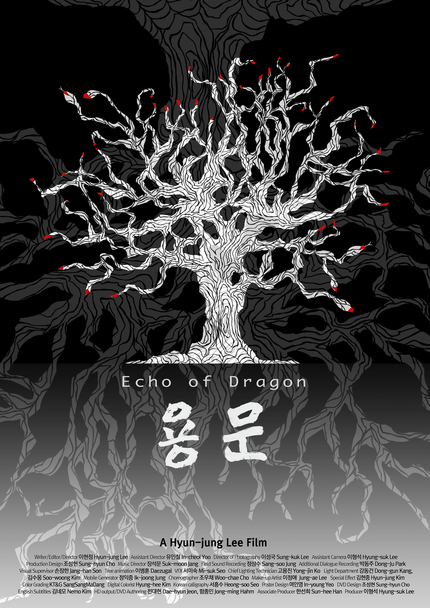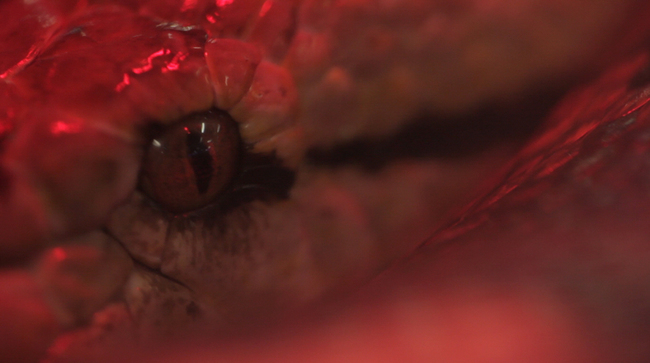Jeonju 2013 Review: Experimental ECHO OF DRAGON Explores Myths and Emotion

When it comes to what we expect to see on screen, it's worth considering sometimes just how strict we can be. Though we demand filmmakers to be creative, our definition of originality is actually quite narrow. As the lights dim and projectors roll, we wait for characters to show up and guide us along through their world and regale, sadden or shock us with their stories. Like many others I often lament the lack of ingenuity that plagues much of modern cinema but stick me in front of a film that does away with all standard forms of narrative (as we know them today) and suddenly I'm at a loss to process what's unspooling before me.
Lee Hyunjung made a small splash with her debut Virgin Forest last year, an auto-biographical documentary that has slowly found a life for itself on the festival circuit following its debut at the Cinema Digital Seoul Film Festival (CinDi), a wonderfully programmed event that is now sadly now more. Generally eschewing narrative as it undulates between themes of loss, grief and femininity, her experimental work was a breeze of fresh air in the Korean independent filmmaking community. This year, her sophomore effort Echo of Dragon premiered at the Jeonju International Film Festival, where it found itself in the Korean Competition.
In a dreary mountainside spot on the outskirts of Seoul, a strange man name Yong meanders about the bleak landscape. He is supposed to run some errands for his sister, who runs a store selling snake stew aphrodisiacs to bored, well to do and unsatisfied housewives, but instead finds himself meeting a coterie of disparate characters, including a maniacal man who proclaims that Yong is the last surviving dragon and a refugee from north of the border working the streets to make her living.
Tackling fiction with only a semblance of a storyline, Lee's latest showcases her interest in marginalized characters. By her own admission Echo of Dragon is a film that seeks to impart its ideas through emotions rather than narrative. The main character's name means Dragon in Korean and this mythical and mysterious creature lies at the heart of the film's intention. Carrying differing connotations in Eastern and Western cultures, the legendary beast acts as a symbol for our differing points of view. Similarly the North Korean refugee is less a fully formed character than an externalization of Lee's empathy for those living on the fringes of society, as she embodies both the ostracization of North Korean refugees and the fate of the fallen woman.
The film's handheld and digital aesthetic is jarring at first but after a while it's easy to become engrossed in its earthy and intimate visuals. The camera sometimes takes on a life of its own as it flicks upwards and stares at a tree's branches while circling around, never standing still. These almost trancelike moments could easy come off as pretentious distractions but in Lee's hands and nestled within the film's thinly plotted musings, they fit in perfectly.
It probably isn't the wisest thing to try and understand every nook and cranny of Lee's fiercely experimental work: I for one wasn't able to fathom quite a lot of what I saw. However, it is an experience that pulls you in, washing over you with its unique feeling and perspective. Lee Hyunjung is definitely an acquired taste and many may not warm to her difficult work, but, if anything, there's nothing else like Echo of Dragon in Korean cinema.








